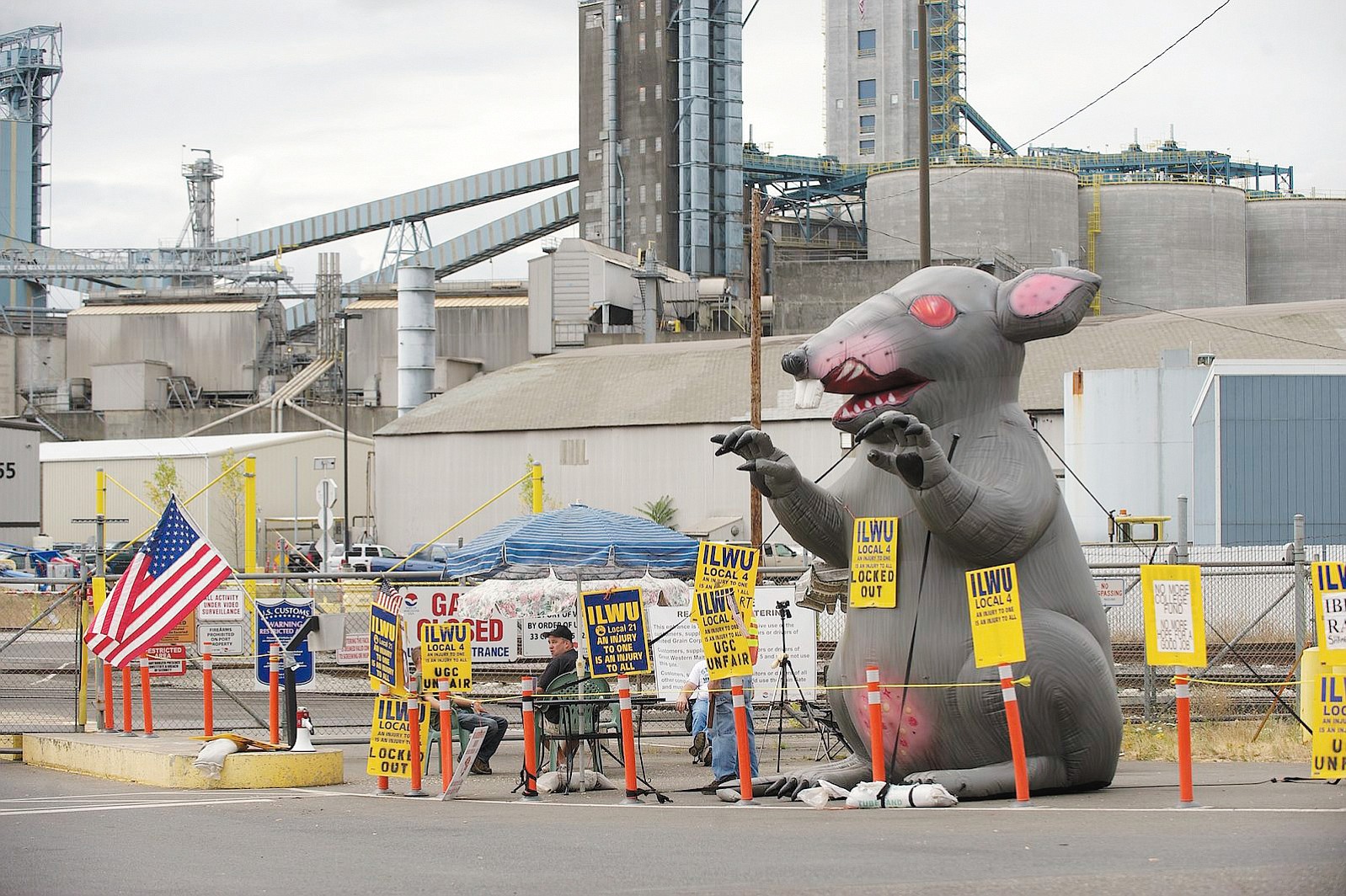Offers by United Grain Corp. to pay the Clark County Sheriff’s Office to escort grain inspectors past picket lines at its Port of Vancouver facility have fallen on deaf ears.
The sheriff’s office Friday declined formal requests from the Clark County Board of Commissioners and United Grain to consider the proposal. Citing safety concerns, grain inspectors are refusing to enter the facility, where a labor dispute between the company and the Longshore and Warehouse Union has been underway for the past 17 months.
The sheriff’s office said in a statement to The Columbian that it would not be “providing law enforcement escorts for grain inspectors at the Port of Vancouver.”
The attempts to pay for a local escort came after Gov. Jay Inslee in June decided to stop using the Washington State Patrol to ferry grain inspectors past picket lines.
Before Inslee discontinued the State Patrol escorts, United Grain sent a letter asking him to reconsider. The company noted the governor’s budgetary concerns and said it was willing to reimburse the state for the cost of providing security escorts for the grain inspectors.
Clark County commissioners Tom Mielke and David Madore on Wednesday directed staff to draft a letter to the sheriff’s office, asking whether deputies could provide inspectors with escorts at United Grain’s expense.
“I don’t want to jeopardize that employment opportunity that we have,” Mielke said Wednesday.
Acknowledging that the commissioners hold no authority over the sheriff, Madore said Wednesday that the commissioners were not staking a position on the ongoing dispute but were trying to find ways to keep the grain facility operational. Commissioner Ed Barnes, a local labor leader, was absent from Wednesday’s commissioners meeting.
United Grain Corp. on Thursday sent its own letter to Sheriff Garry Lucas asking him if he’d consider providing security escorts to the Washington State Department of Agriculture’s grain inspectors.
“We are willing to reimburse the Clark County Sheriff’s Office for this service,” wrote Tony Flagg, a United Grain official.
A primary issue in the latest flap over grain inspections is Gov. Inslee’s decision to stop providing the State Patrol security escorts for state inspectors that he’d ordered last fall. The inspectors had said they were being intimidated and threatened by union picketers while trying to reach United Grain through a gate on the port’s east side.
Jaime Smith, a spokeswoman for Inslee, has said the governor originally authorized the security escorts to support inspections in hopes it would give United Grain and the Longshore union time to negotiate an agreement. Smith said negotiations “during that eight months were unsuccessful, and it became increasingly clear that keeping (State Patrol) escorts in place was not resulting in productive negotiations as intended.”
On Friday, Rep. Jaime Herrera Beutler, R-Camas, and three other members of Congress entered the mix, sending a letter to Inslee urging him to reinstate escorts for grain inspectors “to allow for a safe working environment at the port, assure the safety of our food supply, provide certainty for farmers, and get folks throughout Washington and the region back to work.”
Jason Ferrante, grain inspection program manager for the state Department of Agriculture, notified United Grain that inspections would end on July 7, in light of unacceptable safety risks. Union picketers’ behaviors have periodically escalated and “posed greater risks” to inspectors even with State Patrol officers on hand, Ferrante wrote to the company.
United Grain and the Port of Vancouver sent separate letters critical of the department’s decision to no longer provide grain inspections. They argue there’s little or no evidence that it’s unsafe for state grain inspectors to do their work.
Smith, the governor’s spokeswoman, has told The Columbian that the governor was clear with both United Grain and the Longshore union that the State Patrol services were temporary “and not to be considered a standing arrangement.”
Smith also said that, under state law, State Patrol “lacks authority to contract police services to private entities.
Private companies wanting to pay for security services can work with protection and security brokers who often hire off-duty officers and troopers.”
The Pacific Maritime Association and the International Longshore and Warehouse Union issued a statement late Friday that they would set aside negotiations on a new contract affecting 29 west coast ports, including Vancouver, and 20,000 longshore workers until Aug. 4 so that they could work next week on negotiating new contracts in the Northwest.



